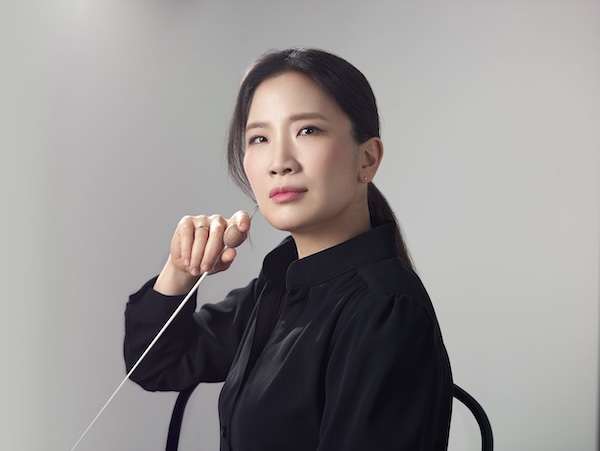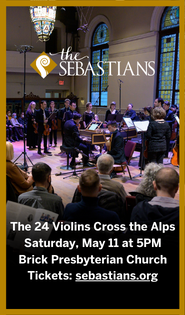Kim makes an exhilarating second impression in Philharmonic debut

What your mother told you is true: first impressions matter. Eun Sun Kim, music director of the San Francisco Opera, made a poor one Thursday night in her New York Philharmonic debut, opening the concert with a dry run-through of Sibelius’s Finlandia.
What mother perhaps didn’t go on to say is that it’s possible to recover from a less-than-stellar first impression. Kim did that as well, closing the program with an exciting and deeply engaged performance of Rachmaninoff’s Third Symphony.
In between, the local premiere of Anders Hillborg’s Piano Concerto No. 2, “The MAX Concerto,” left little impression other than a fistful of familiar piano-concerto gestures, despite the efforts of its distinguished dedicatee, Emanuel Ax.
As the performance of Finlandia ticked along, one imagined turning to a Finnish seatmate and asking, “So, what’s the big deal about this piece?” The fervor of its hymn-like melody, the militancy of its stuttering brass interjections, the national aspirations of an oppressed people—all seemed missing from this cool, efficient rendering.
A similar “What’s this about?” feeling lingered over Hillborg’s concerto, inspired (the composer has said) by Ax’s versatility and stylish playing. In a single movement with sections titled “Grand Piano,” “Toy Piano,” “Chorales and Echo Chamber” and the like, Hillborg seemed to aim for a versatility of his own, putting a postmodern gloss on allusions ranging from Bach to Ravel to Glass. The piece’s subtitle, derived from a contraction of “Manny Ax,” seemed also to connote “eclectic to the max.”
There are ways to do that and leave a strong impression—this month, after all, marks the 100th anniversary of Rhapsody in Blue. But Hillborg’s compendium of big chords, tinkles, ripping glissandos and keyboard-spanning arpeggios came across mainly as a showcase for Ax’s pianistic skills.
That, plus the piece’s quiet ending, put a damper on the now-all-but-mandatory standing ovation at the end. A few brave souls swam against the tide of indifference and rose from their seats, perhaps as much in tribute to the venerable pianist as to the piece’s merits.
Those audience members who did not return after intermission, thankfully not too many, missed the performance of the night. From its opening bars—a hushed motto theme followed by a fierce, shooting scale and pounding rhythms—Rachmaninoff’s symphony leaped off the page.
Conductor Kim was a picture of engagement on the podium, encouraging, shaping, and building the tightest symphonic structure in this composer’s oeuvre. Her attention to detail was both visible and audible, without interrupting the music’s forward momentum. Rachmaninoff’s endlessly imaginative scoring sparkled in Geffen Hall’s transparent acoustic, but when a melody in the cellos needed to sing, the players dug in and gave it that Rachmaninoff surge.
That said, fans of Rachmaninoff’s long, soaring melodies heard none here–a reason, no doubt, for this work’s decades of neglect in concert halls—but instead found an adagio built from melodic gems that glowed briefly in their distinctive settings. Kim tenderly strung these together, before unleashing the scherzando middle section in a flurry of beats and cues.
In Kim’s hands, the athletic, festive finale–a Russian tradition honored by Tchaikovsky and Rachmaninoff, parodied by Shostakovich and Stravinsky—was no shapeless orgy, but a taut structure shot through with suspenseful interludes, well-managed crescendos and even a tugging tune or two.
Sometimes it’s hard to tell a standing ovation from a fumbling-with-coats ovation, but there’s no doubt the audience was on its feet at the symphony’s close. The applause gave Kim just enough time to recognize individual wind and string players for their excellent solos.
It’s a shame she wasn’t recalled to the stage at least one more time, in recognition of what turned out to be a successful debut, thanks to that all-important second impression.
The program will be repeated 8 p.m. Friday and Saturday. nyphil.org







